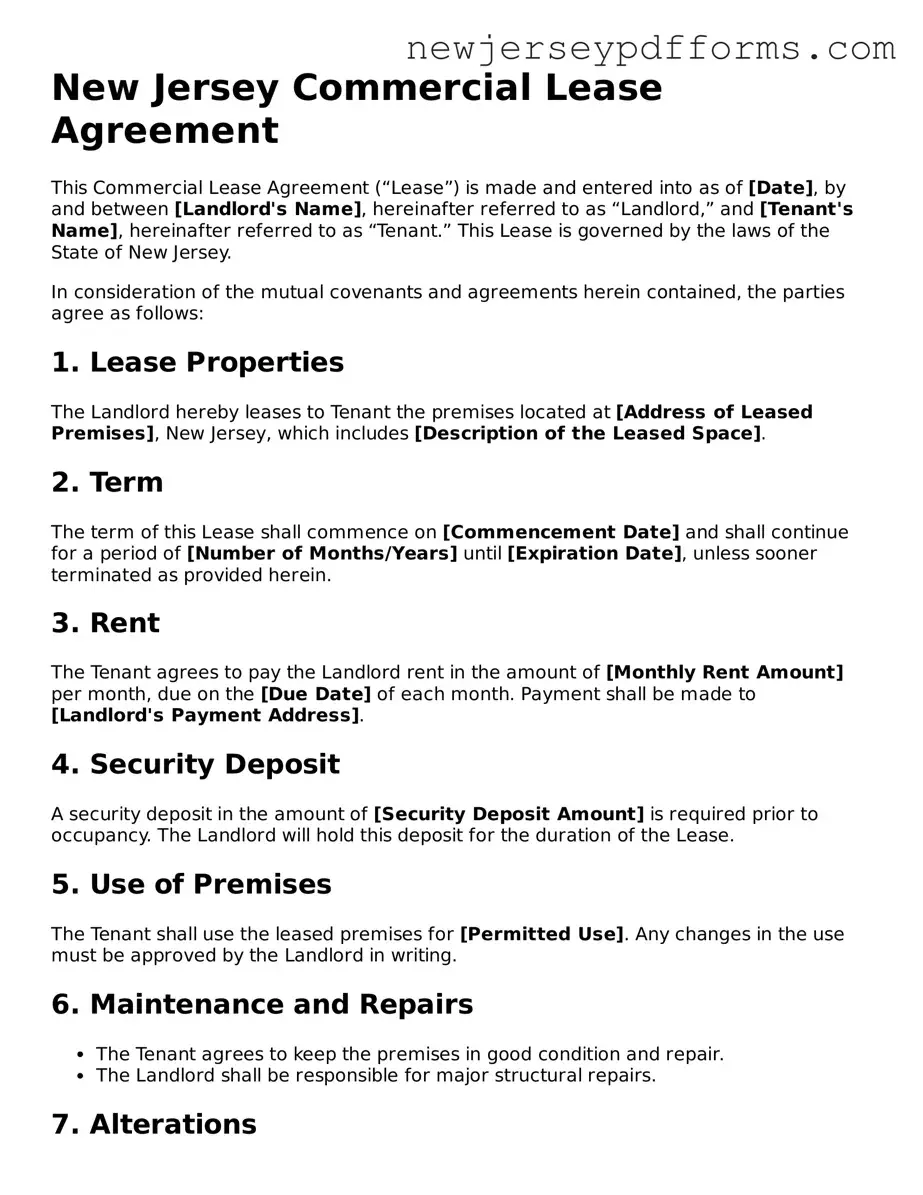The New Jersey Residential Lease Agreement is similar to the Commercial Lease Agreement in that both documents outline the terms under which a property is rented. While the residential lease focuses on living spaces, the commercial lease is tailored for business purposes. Both agreements detail the duration of the lease, rental amounts, and responsibilities of the tenant and landlord. They also typically include clauses about maintenance, repairs, and termination conditions, ensuring that both parties understand their rights and obligations.
The New Jersey Sublease Agreement shares similarities with the Commercial Lease Agreement, particularly regarding the transfer of rights. In a sublease, the original tenant can rent out a portion or all of their leased space to another party, which must be done with the landlord's consent. Like the commercial lease, the sublease agreement outlines the terms of occupancy, payment, and responsibilities, ensuring that the original tenant remains accountable to the landlord while allowing for flexibility in occupancy.
The New Jersey Lease Option Agreement is another document that aligns with the Commercial Lease Agreement. This type of lease allows tenants the option to purchase the property at a later date, providing them with an opportunity to invest in a property they are currently renting. Similar to a commercial lease, it specifies rental terms, the option fee, and the purchase price, offering a pathway for tenants who may wish to transition from renting to owning.
The New Jersey Commercial Property Purchase Agreement is closely related to the Commercial Lease Agreement as both documents deal with commercial real estate. While the lease outlines the terms of renting a property, the purchase agreement details the terms of buying it. Both documents must include critical information such as price, contingencies, and timelines, ensuring clarity in the transaction process, whether renting or purchasing.
The New Jersey Assignment of Lease Agreement also bears resemblance to the Commercial Lease Agreement. This document allows a tenant to transfer their lease obligations to another party, with the landlord’s approval. Like the commercial lease, it includes terms that protect the interests of all parties involved, ensuring that the new tenant understands their rights and responsibilities while maintaining the original tenant's obligations to the landlord.
The New Jersey Commercial Lease Addendum can be viewed as an extension of the Commercial Lease Agreement. This document is used to modify or add specific terms to the original lease, such as additional fees, changes in rental amounts, or specific use clauses. Both documents work in tandem to ensure that any changes are clearly documented and agreed upon by all parties, maintaining the integrity of the leasing relationship.
Lastly, the New Jersey Property Management Agreement is similar in that it outlines the relationship between property owners and management companies. While the Commercial Lease Agreement focuses on the tenant-landlord relationship, the management agreement details how the property will be managed on behalf of the owner. Both documents establish expectations and responsibilities, ensuring that the property is maintained and operated according to the agreed-upon terms.

